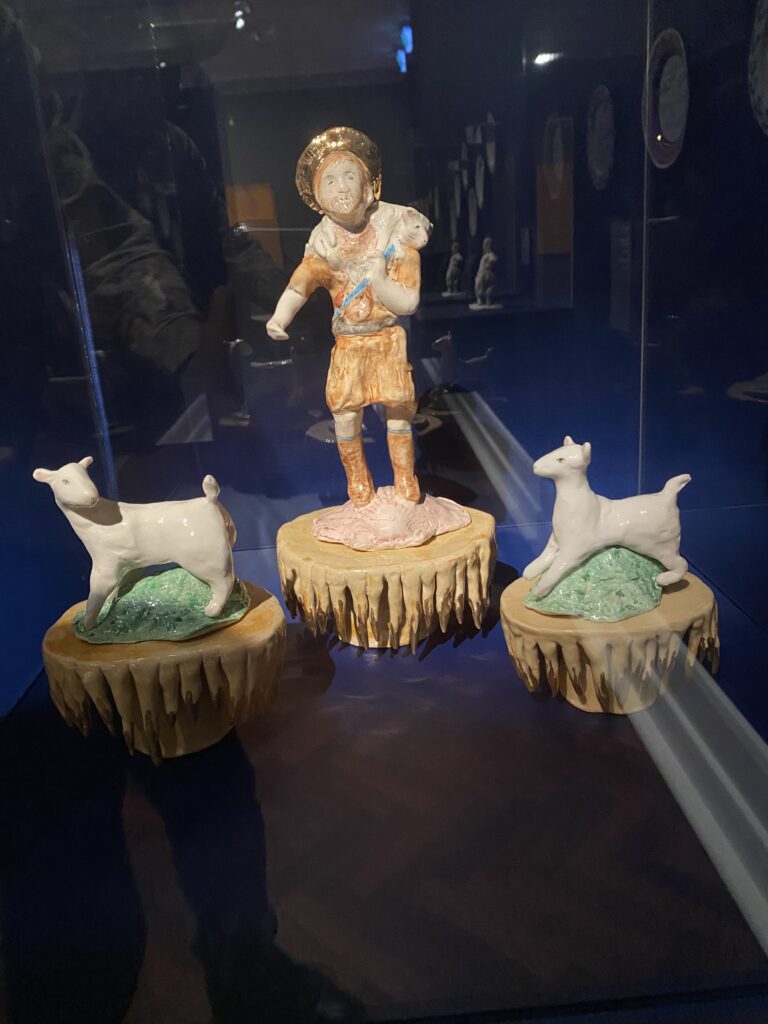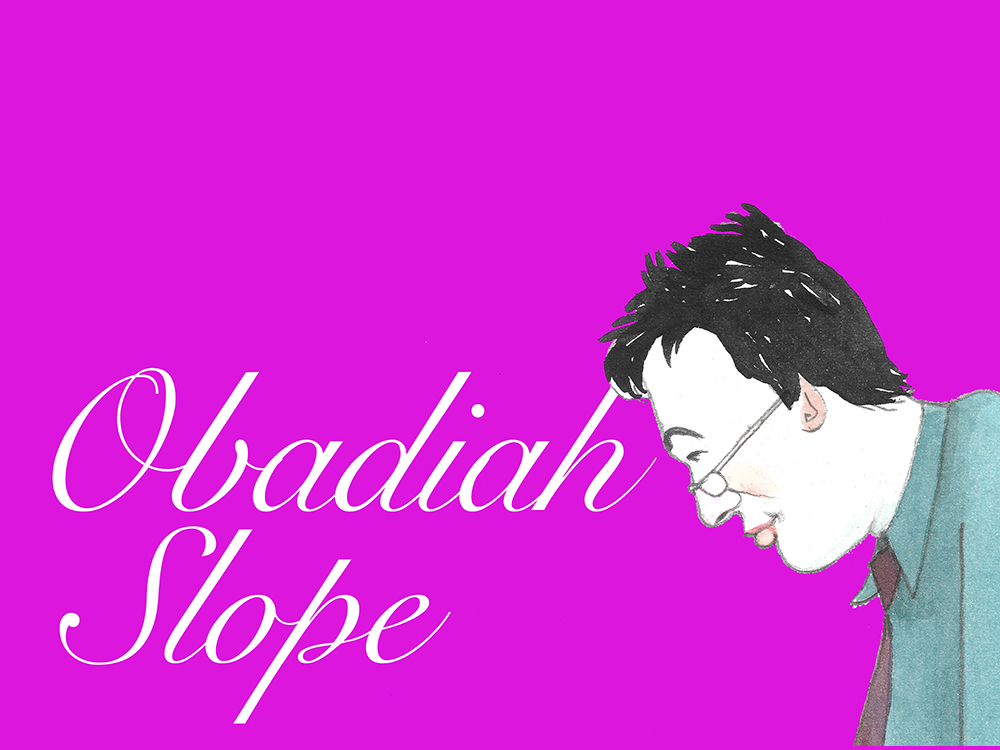An Obadiah Slope Column:
Which war: Athiest turned Orthodox Christian Paul Kingsnorth in First Things suggests that those who believe that a battle for Western Civilization is the main game for Christians might be aiming away from our target’s bullseye. He ignites a necessary discussion about whether Christianity is primaily a means to defend Western civilisation or a supernatural message of salvation..
“If the Christian faith is the basis of Western culture, what happens when that faith retreats—or is rejected? We know the answer because that rejection, or retreat—what the poet Matthew Arnold called the “melancholy, long, withdrawing roar” of the “sea of the faith”—has been going on perhaps since the Renaissance. As we survey the twenty-first-century landscape, at least in Western Europe, we can see that our founding religion is now defunct as a guiding force and a cultural glue.
“A question logically arises from that observation: Is the decline of Christianity responsible for our current malaise? Is our lack of faith at the root of our loss of confidence and the ensuing inversion of our old values? The answer to this, in one sense, is obviously yes. As another historian, Tom Holland, demonstrated in his book Dominion, it was Christianity that formed the Western mind. When such a sacred order dies, there will be upheaval at every level of society, from politics right down to the level of the soul.
“This, I think, is where we are. And I am hardly the only one to have noticed. In fact, almost everyone who is paying attention has by now noticed. Some of those people, in response, have come to a conclusion: Since Christianity was the basis of this “Western” culture of ours, and since this culture is now sick or even dying, the way to revive it must be to revive Christianity—not so much as a religion, but rather as a social glue, or even as a weapon. What we need, we increasingly hear from many different quarters, is a return to something called “Christian civilization”—regardless of whether the Christian faith is, in fact, true.
“At a certain level, this might appear to be an attractive narrative. But I believe it is a deadly mistake.”
So, while Obadiah is pleased to see that not-yet-Christians like Jordan Peterson and Tom Holland see great value in Christian influence on Western History, there is something of a cart before the horse.
If Christianity has had good effects on society, indeed the lesson to draw is not to push for a vision of society – but to push the gospel that produces sinners saved by grace. And the byproduct of that is (Obadiah hopes) a better society.
###

Sheepish: Jesus leads his Sheeple is the title of this installation of ceramics by Sassy Park in the Ballarat Art Gallery. Obadiah is of the firm view this gallery gives regional galleries a fine name, Although the term “sheeple” Is a derogatory term generally used by libertarian conservatives to denigrate those seen as dedicated to following opinions that Libertarians do not like and implies that the sheepie/people are not independent thinkers, the sculpture’s title has merit. We are the sheep that follow the good shepherd. And because of that we are no longer independent, we have a Lord over us. We are United with Christ. We follow him. So as a people, we are sheep.
Obadiah is always surprised when Christians use the term “sheeple” as criticism of others. Sheep is a good thing for us to be if there is a good shepherd involved. And is is there.
###
Civilisation: An example of overreach (in Obadiah’s view) by a group that wants to celebrate the benefits of Western Civilisation comes from the Australian Christian Lobby. Their Victorian director, Jasmine Yuen, has called the Allan Labor Government’s decision to cancel an Australia Day Parade “a disgrace”.
Freedom of Assembly would indicate that organising a parade is something the ACL might be able to do – perhaps in protest – if the Victorian government follows through. However, Yuen’s reasons for wanting the parade raise Obadiah’s eyebrows.
“The Government’s decision will only encourage further dissension in an already polarised State.” Yuen said. “Our history, while imperfect, has united Australians from diverse backgrounds who, over the past 200 years, have worked together to build this nation and establish its place on the world stage as a leading OECD nation.”
“Instead of promoting the idea that ‘January 26 means different things to different people’, Premier Allan and her Government should encourage Victorians to take pride in our country and history,” Yuen said.
“The freedom and prosperity we now enjoy, including our education and health care, are indebted to a Judeo-Christian heritage and culture that was started on January 26.”
“Instead of politicising Australia day, we must move forward in unity and promote forgiveness for any historical wrongs. We cannot discredit the goodness and blessings we have inherited.”
It seems to Obadiah that honouring the good things about Australia is a worthy cause. So he gives marks to Yuen for that. But brushing over the sufferings of the Indigenous peoples by performing that honouring it on a particular day seems to Obadiah to be a poor way to “move forward in unity and promote forgiveness for any historical wrongs.”
We can take pride in our country. We should take pride in our country. But to “promote forgiveness for any historical wrongs” (and there definitely were historical wrongs) may mean being humble enough to move the day. Yuen overshot with these comments in Obadiah’s view.
###
From Alice Springs: A more nuanced view comes from Senator Jacinta Price in the Nine papers. Obadiah was surprised to see her there and a little surprised to agree with her! Writing about the Melbourne Storm NRL team’s plan to cut back on using welcomes to country, she writes, “So, have the Welcome to Country, but also allow people to think about when and how that’s best done. Let’s not crowd out the nuance, and importantly, let’s not lose sight of what we’re trying to achieve for Indigenous Australians.”
Price says to keep the Welcomes to Country but be thoughtful about when to use it. Her reasoning is that it has been overused and become perfunctory. Many readers would have attended meetings where every speaker feels they have to start with it.
Obadiah thinks, let’s also think about Australia Day – and consider when to do it.
###
Pumpkin time: Off to visit the National Gallery of Victoria to see Yayoi Kusuma’s exhibition, which is rapidly becoming a blockbuster. Obadiah’s first thought was that visiting Melbourne would be an interesting way to avoid the ferry fare to Naoshima, the Japanese art island that displays Kusuma’s huge pumpkin sculptures.

But as you can see, the centrepiece of the NGV exhibition is a pumpkin that opens up and dances. Kusuma, it turns out, managed to be in the vortex of the abstract expressionist movement in New York, inventing immersive works that involve far too many phallic shapes for Obadiah’s sensitivities. Kusuma declares herself to have been afraid of sex but chose a very sixties way of dealing with it. She also developing fascinating immersive experiences, many of which have travelled to Melbourne. Obadiah loves the pop art that Kusuma is a master of, especially her huge pumpkins. They sit best outside in Japan, but Melbourne is a lot easier to get to.

